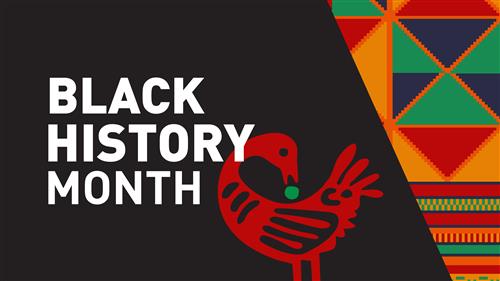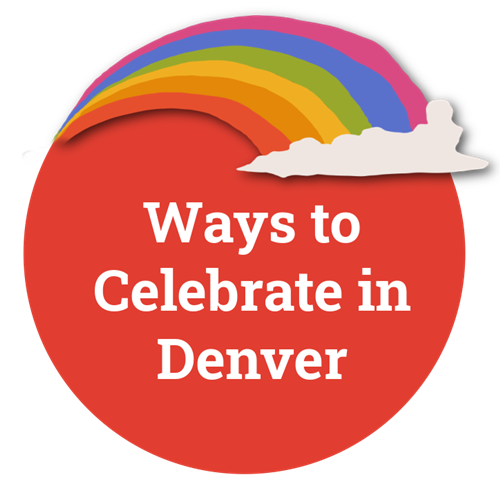-

February is Black History Month, a time when the nation reflects and pays tribute to the generations of African Americans who fought with adversity to achieve full citizenship in American society, according to the official website. There are teaching resources provided from the National Archives, Library of Congress, National Endowment for the Humanities, National Gallery of Art, National Park Service and United States Holocaust Memorial Museum available here.
Content Accordion
-
Why We Celebrate Black History Month?
Below are a few lessons learned about why teaching and learning African American and other histories of our diverse U.S population is so important in today’s landscape.
- History grounds us in our roots. We need to understand where we have come from in order to understand where we are going.
- History helps us understand change. History is a continuous documentation of our past, including great triumphs and grave mistakes. History is also about the place.
- History reveals patterns in our pasts. Another way this lesson of change is important is by helping us understand the patterns that arise in our shared timeline. History repeats itself, as the saying goes.
- History provides a foundation for activism. Only by having a firm grasp on history can we tackle the kinds of political, social or educational reform that we want to see happen.
- History makes us more empathetic. It also provides a rather strong foundation for empathy across cultures.
- History can inspire us to learn more. Finally, history is important because it is a long, nearly endless collection of stories, lessons, and philosophies to learn.
- U.S. history, Colorado and Denver history makes no sense without African American, Latino, Native American and Asian history.
- Our nation’s present problems with race and intolerance make no sense if we don’t know the history behind them.
- All peoples’ history is American history, and it should be taught throughout the year across the curriculum—not confined to a single month.
Resources
-
Resources for the Classroom
New resources:
- 28 Days of Black History - Educational and actionable ways to celebrate Black History, sent to your email daily.
Black History and National Park Services - Lessons and instructions for you to explore people, places, and stories that are Black History related from more than 400 national parks and communities across the country through National Park Service programs and partners. - Black Health Matters: Home - Black Health Matters provides information about health and well-being from a service-oriented perspective–with lots of upbeat, positive solutions and tips, including: Health, Beauty, Mind & Body, Nutrition & Fitness.
- African American Wellness Project - Black Health Disparities - AAWP focuses on those tools that you need to get the best quality healthcare regardless of insurance or circumstance.
- Colorado Black Health Collaborative (CBHC) - The mission of the Colorado Black Health Collaborative is to achieve health equity in Colorado’s Black community.
- Black History Month Resource Guide for Educators and Families – Center for Racial Justice in Education - The Center for Racial Justice in Education’s mission is to train and empower educators to dismantle patterns of racism and injustice in our schools and communities. At the Center for Racial Justice in Education, we envision a world where all young people learn and thrive in racially equitable, liberating, and empowering educational spaces.
- Honoring Black Agency & Black Joy - Facing History and Ourselves uses lessons of history to challenge teachers and their students to stand up to bigotry and hate. Our resources address racism, antisemitism, and prejudice at pivotal moments in history, we also have resources that explore the Armenian Genocide, the Civil Rights Movement and race in America.
Past resources:
African American History in Denver and DPS - Timeline - curated by Sylvia Bookhardt, the history of Denver Public Schools follows the challenges and accomplishments made by individuals within Denver’s Black and African American community. Despite historical oppression, trauma, discrimination, and legal exclusion, contributions made by trailblazers within the Black and African American community stand as essential lessons today. It is important to explore history to deepen personal awareness. As awareness is deepened, commitment to keep this history relevant will uplift and enrich a personal experience and journey that is meaningful.
List of Black Authors and Illustrators - Click on the author/illustrator name and it links you to their home page or a website that features that particular person. On the list 3 books featured per name. Contains information on checking out Sora eBooks.
Black Authors: Sora eBook and audiobook collection - Sora collection highlighting authors who identify as members of the Black community.
Black Boy Joy: Sora eBook and audiobook collection - Sora collection celebrating the humanity of black boys.
#1000BlackGirlBooks: Sora eBook and audiobook collection - Sora collection of books based on Marley Dias' initiative to curate and promote books that reflect the lived experiences of Black girls.
History Liberated: Sora eBook and audiobook collection - Sora collection highlighting the perspectives of historically marginalized groups to provide a well-rounded view of our nation's past and present.
Harlem Renaissance: Sora eBook and audiobook collection - Sora collection of books about the Harlem Renaissance and its leaders, as well as books written by Harlem Renaissance creators.
Diversity in Aquatics - Educate, promote, and support swimming, water safety, and healthy aquatics activities for vulnerable populations.
Jordan Casteel Paints Her Community - Art 21 - Where does a painter find her subject matter? With a process that takes her from the streets of Harlem to her studio in DUMBO, Brooklyn, artist Jordan Casteel paints vibrant large scale portraits, making visible the often unrepresented humanity of Black men. At first struggling to find subject matter that could speak to the political realities of police violence and implicit bias, Casteel drew inspiration from her twin brother. The film follows Casteel as she travels from a brunch at her aunt's Harlem home to a studio visit with university students, to an informal hangout with friends and finally back to the streets of Harlem, mirroring the artist’s own navigation of New York's diverse racial and cultural spaces. Recognizing her complex position as a Black woman painting the bodies of Black men, Casteel nevertheless feels present in the work.
Can Art amend History? - Titus Kaphar - TED - Artist Titus Kaphar makes paintings and sculptures that wrestle with the struggles of the past while speaking to the diversity and advances of the present. In an unforgettable live workshop, Kaphar takes a brush full of white paint to a replica of a 17th-century Frans Hals painting, obscuring parts of the composition and bringing its hidden story into view. There's a narrative coded in art like this, Kaphar says. What happens when we shift our focus and confront unspoken truths?
Life Doesn't Frighten Me - Maya Angelou - Poetry by Maya Angelou and art by Jean-Michel Basquiat provide students with a creative prompt for addressing and overcoming imaginary fears through the power of art and the spoken word.
Black Representation in Art - Black artists have made and continue to make significant contributions to our understanding of contemporary art by addressing issues and topics that are often left out of the canon of traditional art history.
Decolonizing the Music Room - Songs, units, music, biographies and discussion forums for people to discuss and examine different perspectives of music making, and how music has been used throughout history for social justice, and how music can be used as a system of oppression or as a vehicle for change.
List of Black Composers and Vocal Groups - This is a list of songs and pictures of Black composers not taught in traditional music classrooms.
Music by Black Composers - Classical - Music by Black Composers (MBC) is dedicated to helping to bring greater diversity to the ranks of classical music performers, composers, and audiences by making the music of Black composers available to everyone. MBC’s Living Composers Directory is designed for those seeking to commission; for performers, conductors, and concert programmers seeking existing music; and for other researchers and scholars of contemporary classical music.
Black Culture Connection - This PBS website offers a wide variety of lessons, musical examples and videos ranging from the "history of" to "How to Create; your own Hip-Hop.Decolonize the Dance Classroom - From "Momentum Stage" this collection is full of resources that feature presenters and content that comes from diverse perspectives and not through channels of systemic privilege.
Decolonize the Drama and Theatre Arts Classroom - From "Momentum Stage" this collection is full of resources that feature presenters and content that comes from diverse perspectives and not through channels of systemic privilege.
Drop me off in Harlem - An interactive experience by ArtsEdge. Discover the themes and works that emerged when creative and intellectual voices intersected during the Harlem Renaissance.
- 28 Days of Black History - Educational and actionable ways to celebrate Black History, sent to your email daily.
Excerpt From Dr. Bailey
-
Read an excerpt from Dr. Bailey's "Importance of Broadening Our View of History":
You can tell a great deal about a country and a people by what they deem important enough to remember, to create moments for — what they put in their museums, their textbooks and what they celebrate. We also can learn more about a country by what it chooses to forget — its mistakes, its disappointments, and its embarrassments. The author James Baldwin wrote, “It is the past that makes the present coherent.” For many Americans, Black History Month is a time to reflect on the past, recognize the present and look forward to the possibilities of the future. A broader view of our histories can benefit all students and make school a place where all children can feel valued, appreciated and safe.














